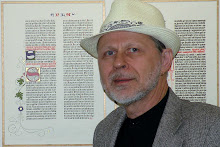30 September 2005
First person or third person? It’s easier to tell the story as first person narrator, but seems more commercially acceptable to use third person. My writing teachers always said third person for novels. Do I take the leap and try to do it as a third person story?
My main character is doing oral history/genealogical research. Which is it? Is he doing an oral history of the old people in a town? Or is he interviewing people in a nursing home? Or is he interviewing members of a family that is paying to have a genealogy done?
What connects crazy Aunt Hattie’s story to the big breakthrough of a long sequence of accidental witnesses stretching back to Biblical times? How do I make the leap? It’s easy to investigate and find that her story is actually linked to a real event. But what is it that connects it to the whole history of alien involvement? This has to make the bridge from casual reality to science fiction so seamlessly that people don’t even realize that it’s changed. How do I make the connection and to what?
If I’m in third person, I could simply jump to the alien mind and my researcher could be just one more dupe that gets drawn into the web as an accidental witness. Perhaps the real story is taking place above/around us and he is discovering it because there is a faction among the aliens that want to be discovered.
This shifts the story line to one in which the aliens are revealed as not being benign, but as having some significant plan in which earth is the what?? Battleground? Too Ron Hubbard. Pawn? Playing field? Weapon? I can’t tell. Or are we not an insignificant sideline of the ultimate plan, but the plan itself? Perhaps we’ve exceeded our usefulness and are now simply being kept until we exterminate ourselves. What do you do with the leftovers after the experiment is finished? How do you recycle a planet?
My main character is doing oral history/genealogical research. Which is it? Is he doing an oral history of the old people in a town? Or is he interviewing people in a nursing home? Or is he interviewing members of a family that is paying to have a genealogy done?
What connects crazy Aunt Hattie’s story to the big breakthrough of a long sequence of accidental witnesses stretching back to Biblical times? How do I make the leap? It’s easy to investigate and find that her story is actually linked to a real event. But what is it that connects it to the whole history of alien involvement? This has to make the bridge from casual reality to science fiction so seamlessly that people don’t even realize that it’s changed. How do I make the connection and to what?
If I’m in third person, I could simply jump to the alien mind and my researcher could be just one more dupe that gets drawn into the web as an accidental witness. Perhaps the real story is taking place above/around us and he is discovering it because there is a faction among the aliens that want to be discovered.
This shifts the story line to one in which the aliens are revealed as not being benign, but as having some significant plan in which earth is the what?? Battleground? Too Ron Hubbard. Pawn? Playing field? Weapon? I can’t tell. Or are we not an insignificant sideline of the ultimate plan, but the plan itself? Perhaps we’ve exceeded our usefulness and are now simply being kept until we exterminate ourselves. What do you do with the leftovers after the experiment is finished? How do you recycle a planet?
Subscribe to:
Post Comments (Atom)

0 comments:
Post a Comment